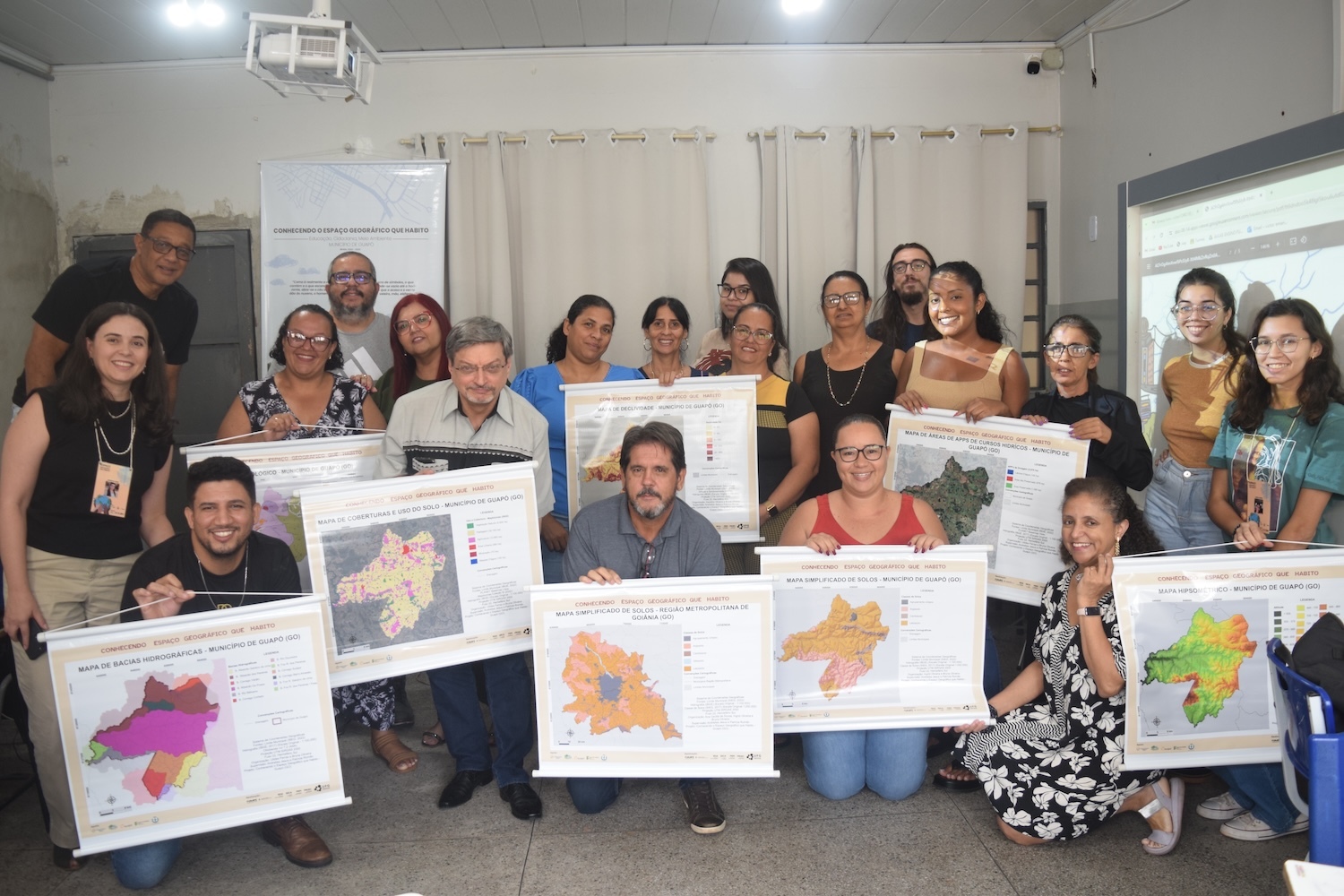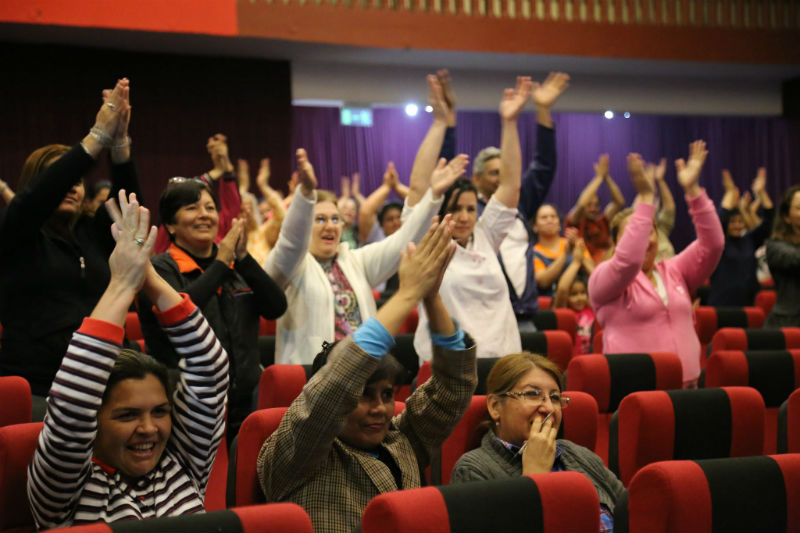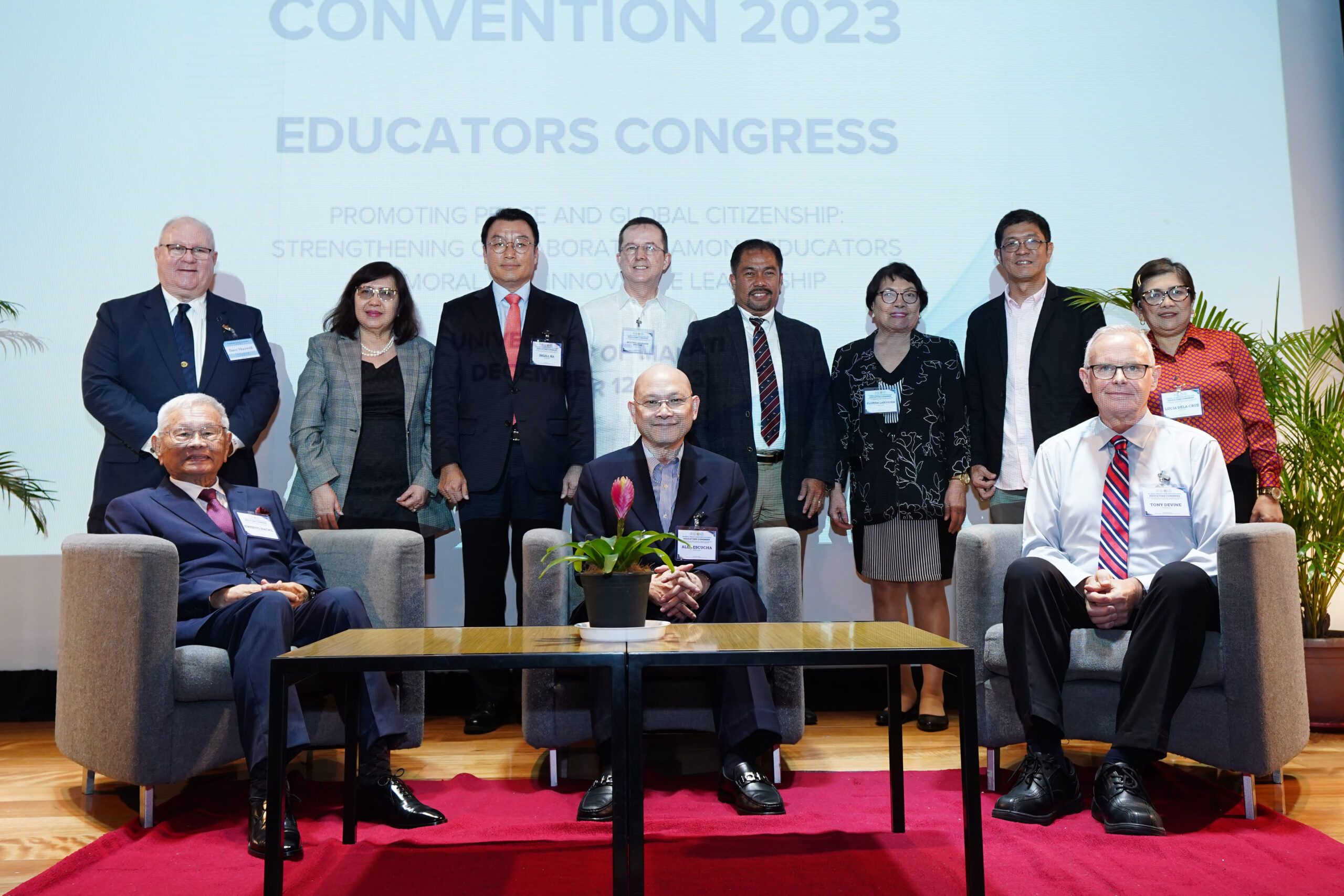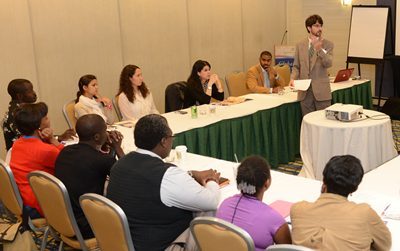
Daniel Shorr, the Executive Director of Building Understanding, discusses leadership training at a forum for young leaders at the 2012 Global Peace Convention.
Peace is an essential element of morality and both are critical values that future leaders must learn to embody as they begin to develop their leadership skills, agreed participants at a forum on leadership at the 2012 Global Peace Convention in Atlanta. The November 29-December 2 Convention, “Moral and Innovative Leadership: Building Healthy Families, Ethical Societies and a Global Culture of Peace,” drew more than 800 participants from 40 countries.
“What does it mean to ‘raise’?” asked Daniel Shorr, the Executive Director of Building Understanding (BUDS). “When you say ‘raising future leaders,’ I think it is influence. It’s the role of government, of parents, neighbors and friends. All of these people exert some influence over us.” The session on raising moral and innovative leaders engaged participants and challenged them to think critically about their own methods of influence.
Rob Hughes, the founder of YouthUniverse posed the question, “What is peace?” One attendee responded, “Peace is a movement of love.” Another explained that peace is “deliberate collaboration—it is making the choice to collaborate with others despite the fact that they might have different opinions or values.” Yet another participant said, “Peace is a state of comfort, where needs are met, and there is mutual respect.”
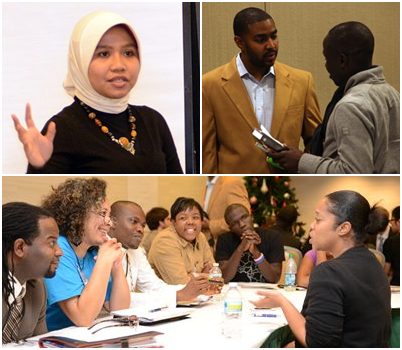 Attendees were also asked to respond to a series of questions by working collaboratively with one another. Questions included: What is the most important lesson you have learned from you peace building experience or in raising moral and innovative leaders? Participants responded, “Peace building starts at home and must be reinforced consistently and peace without justice is not sustainable.”
Attendees were also asked to respond to a series of questions by working collaboratively with one another. Questions included: What is the most important lesson you have learned from you peace building experience or in raising moral and innovative leaders? Participants responded, “Peace building starts at home and must be reinforced consistently and peace without justice is not sustainable.”
In response to the question, What is the biggest ongoing challenge in your work [raising future leaders], a group responded, “Building bridges between dreams and opportunities.” Other participants agreed that the challenge is often not in the acquisition of bright and talented young people, but rather the opportunities for them to engage with the world that they live in. They found that “raising” leaders is a multi-step process where it is not enough simply enrich young people with the values necessary for leadership, but it is also important to help them engage in opportunities to change the world with their influence.
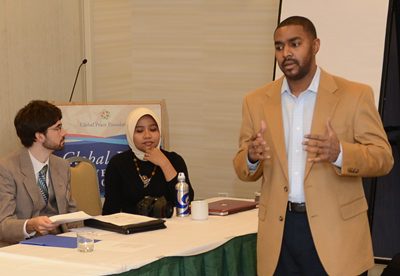
Rob Hughes, the founder of YouthUniverse
Participants talked about their work with young leaders and asked to reflect on memorable experiences. One attendee spoke about his experience with Sports for Peace, which organizes sports tournaments in conflict regions to enable young people to work together and form friendships instead of working against each other.
One attendee from Russia closed the session by saying, “We’ve learned that a leader is shaped by another leader. The first question that young people will ask is, ‘What have you accomplished as a leader, can we see a result.’ If we are to raise moral and innovative leaders, we also must never stop. Always raise the bar for ourselves; otherwise we cannot shape other people to become leaders.”
Laura Riley is a graduate student at Emory University in Atlanta.

